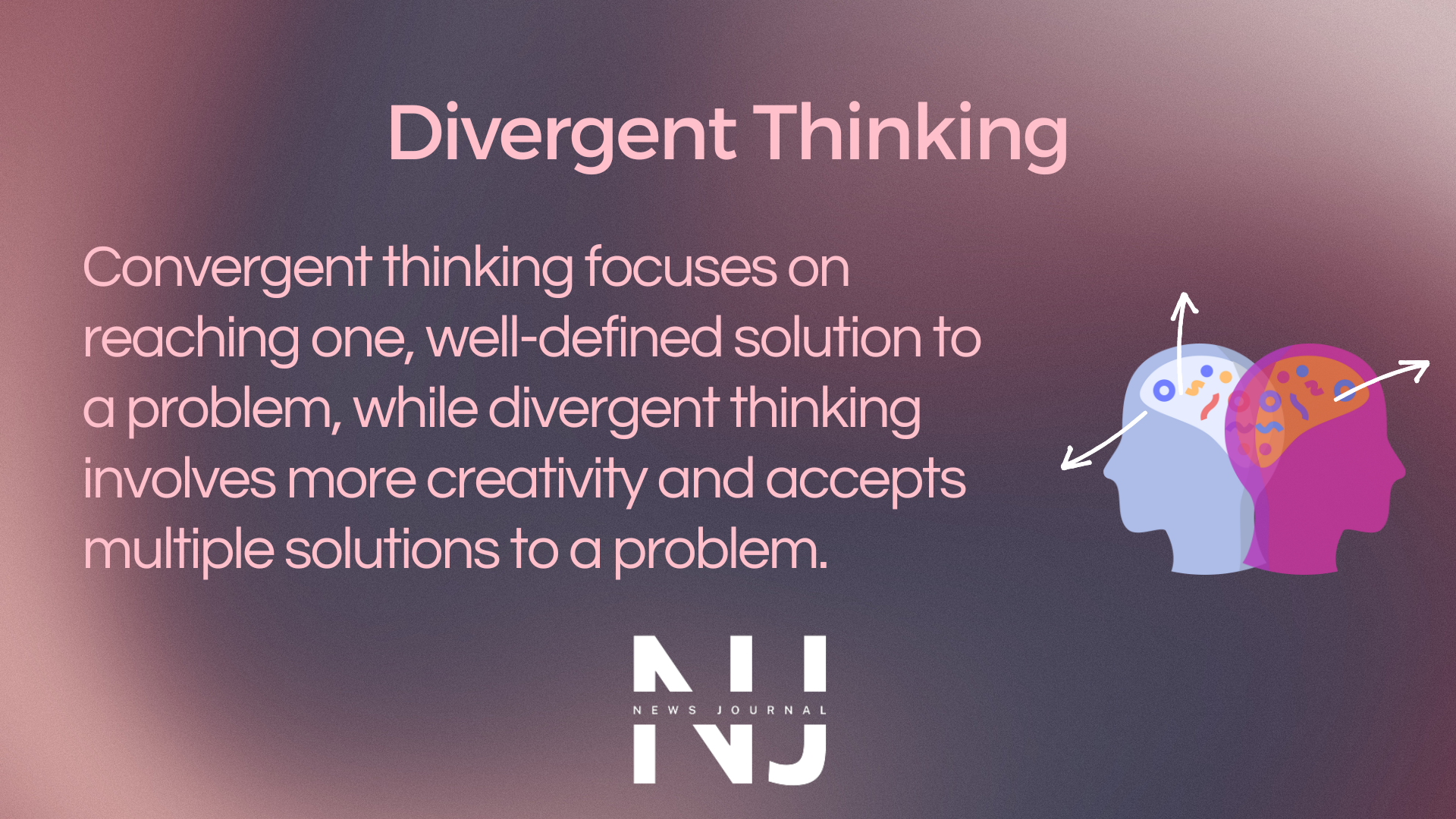Divergent thinking is a cognitive process that involves generating multiple, unique ideas or solutions to a given problem or question. It is often associated with creativity and is considered an essential skill for innovation and problem-solving. Divergent thinking contrasts with convergent thinking, which focuses on finding a single, correct solution to a problem.
Characteristics of Divergent Thinking
Divergent thinking is characterized by several key features:
- Flexibility: The ability to shift between different perspectives, ideas, or approaches when solving a problem.
- Fluency: The capacity to produce a large number of ideas or solutions in a short period.
- Originality: The generation of unique, novel, or unconventional ideas that differ from common or expected solutions.
- Elaboration: The ability to expand upon or refine existing ideas, adding details and complexity.
Importance of Divergent Thinking
Divergent thinking is essential for various reasons:
- Innovation: It fosters the development of new ideas, products, and services, driving progress in various fields.
- Problem-solving: Divergent thinking helps individuals and organizations find creative solutions to complex problems, enabling them to adapt and thrive in changing environments.
- Personal growth: Developing divergent thinking skills can enhance an individual’s creativity, adaptability, and resilience, leading to personal and professional growth.
Techniques to Enhance Divergent Thinking
Several techniques can be employed to improve divergent thinking skills:
- Brainstorming: Encourage the generation of as many ideas as possible, without judgment or evaluation, to promote creative thinking.
- Mind mapping: Use visual diagrams to represent and organize ideas, helping to identify connections and generate new perspectives.
- SCAMPER: Apply the SCAMPER method (Substitute, Combine, Adapt, Modify, Put to another use, Eliminate, Reverse) to stimulate creative thinking by exploring different ways to modify or improve existing ideas.
- Role-playing: Assume different roles or perspectives to explore alternative viewpoints and generate new ideas.
- Meditation and mindfulness: Practice mindfulness techniques to enhance focus, reduce stress, and promote open-mindedness, which can improve divergent thinking.
In summary, divergent thinking is a crucial cognitive process that enables the generation of multiple, unique ideas or solutions to problems. It is essential for innovation, problem-solving, and personal growth. Developing divergent thinking skills can be achieved through various techniques, such as brainstorming, mind mapping, and role-playing.


